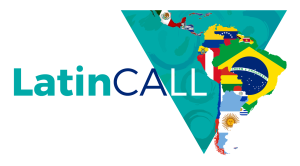Information about the conference

Keynote 1: Ezequiel Molina, Economist at the Education Global Practice of the World Bank.
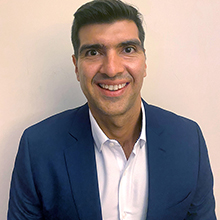 Fresh from leading a World Bank project looking at AI in education throughout Latin America, Ezequiel continues his passion of leading teachers to be the best they can be. We are exceptionally fortunate to welcome him as a keynote speaker to LatinCALL.
Fresh from leading a World Bank project looking at AI in education throughout Latin America, Ezequiel continues his passion of leading teachers to be the best they can be. We are exceptionally fortunate to welcome him as a keynote speaker to LatinCALL.
Title: The AI Revolution in Education: Opportunities and Challenges for Latin America and the Caribbean
Abstract:This presentation will explore the transformative potential of artificial intelligence (AI) in education, with a focus on applications and initiatives in Latin America and the Caribbean. Drawing on examples from the region, we will examine how AI is being leveraged to enhance teaching, personalize learning, and optimize education management. Key areas of discussion will include AI-powered solutions for teachers, students, and administration, as well as critical considerations for equitable and ethical AI integration in education systems. The talk will conclude with recommendations for policymakers and educators on preparing for an AI-driven future of education in the region.
Bio: Ezequiel Molina is a Senior Economist in the Education Global Practice and a co-Lead of the Teachers Thematic Group. His current works focuses on issues related to teacher policy, including pre-service, in-service teacher professional development, and measurement of teacher quality. He has worked on Africa, East Asia, Latin America and South Asia. In the past, Ezequiel worked in Africa HD Economic Unit, the Poverty GP and was a core team member of the World Development Report 2017 on Governance and the Law. Ezequiel holds a Ph.D. in Political Economy from Princeton University, and a B.A. and M.A. in Economics from La Plata National University in Argentina. You can find more information about Ezequiel’s work on his website.
Keynote 2: Collective Keynote Speech from LatinCALL: Emerita Bañados (Chile), Rubén Alberto Pulgarín-Cruz (Colombia), Ester Quiroz Uribe (Chile), Patricia Vasconcelos Almeida (Brazil)
Virtual Exchange is changing the way foreign languages are being taught and we are fortunate to have a number of exceptional proponents of this method of teaching.
Title: Connected and Culturally Competent: The Role of Virtual Exchange in Language Learning and Teaching - Perspectives from Latin America
Abstract: Virtual exchange has become a powerful strategy for fostering intercultural understanding and language learning. This keynote presentation will explore the multifaceted role of virtual exchange in language learning and teaching, drawing on perspectives from South American teachers' experiences.
By examining virtual exchange in the region, from the perspective of the educator, we will delve into the ways in which these initiatives have impacted their professional development, the actual intercultural agents in the classroom, in the championing of global citizenship.
The presentation will address key themes such as personal and professional experiences and feelings as an intercultural agent in virtual exchange programs, the responsibility for facilitating authentic intercultural interaction, cultivating cultural awareness, supporting language learning, building global citizenship, and addressing challenges.
By creating opportunities for exchanging valuable experiences and meaningful cross-cultural communication, this keynote will provide valuable insights for educators, policymakers, and researchers interested in the transformative potential of virtual exchange in language education.
Emerita Bañados-Santana, Associate Professor at Universidad de Concepción, Chile.
Bios:
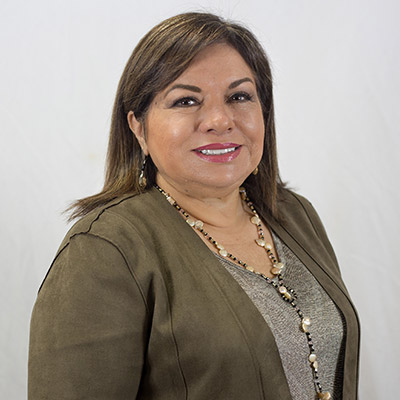 Emerita Bañados is an associate professor of English, and Master of Educational Technology, at the Department of Foreign Languages, at the Universidad de Concepción, Chile. She founded UdeC English Online Programme, an interactive multimedia b-learning environment for communicative English teaching and learning. She led its methodological b-learning implementation, CALL interactive platform and materials design, and was the Director from 2001 to 2018. She had previously directed the creation of other internet projects such as a a Center of Web Resources, and a Language Café for learning English, French, and German. Her experience and research interests include language b-learning and e-learning environments, CALL materials design, Virtual Exchanges, task-based language teaching, collaborative work in intercultural video web interaction projects, and professional development. She started working in Virtual Exchanges in 2006 and has continued up to the present. She has presented widely at international conferences in Europe (WorldCALL, EUROCALL, IATEFL), and the United States (CALICO, TBLT); and has been invited as a Key Speaker at the APEC 2005-2006 Future Education Forum, in Busan, South Korea; at the WorldCALL 2013 Conference in Glasgow, UK; At the CALL Research Conference 2008, University of Antwerp, Belgium; at the National Society of Higher Education Language Teachers (SONAPLES, 2013), Chile, and at the APVEA Conference 2021 Virtual Exchange Association: "Making Virtual Exchange Mainstream". She was invited twice as an international expert (Beijing & Shanghai, 2009) by the UNESCO National Commission of the government of China for advising on a "Cyber Network for Language Learning" (CNLL). She has also been invited by different universities in Chile as an expert adviser for their English language teaching and learning projects with the use of ICT, granted by the Chilean Ministry of Education & the World Bank.
Emerita Bañados is an associate professor of English, and Master of Educational Technology, at the Department of Foreign Languages, at the Universidad de Concepción, Chile. She founded UdeC English Online Programme, an interactive multimedia b-learning environment for communicative English teaching and learning. She led its methodological b-learning implementation, CALL interactive platform and materials design, and was the Director from 2001 to 2018. She had previously directed the creation of other internet projects such as a a Center of Web Resources, and a Language Café for learning English, French, and German. Her experience and research interests include language b-learning and e-learning environments, CALL materials design, Virtual Exchanges, task-based language teaching, collaborative work in intercultural video web interaction projects, and professional development. She started working in Virtual Exchanges in 2006 and has continued up to the present. She has presented widely at international conferences in Europe (WorldCALL, EUROCALL, IATEFL), and the United States (CALICO, TBLT); and has been invited as a Key Speaker at the APEC 2005-2006 Future Education Forum, in Busan, South Korea; at the WorldCALL 2013 Conference in Glasgow, UK; At the CALL Research Conference 2008, University of Antwerp, Belgium; at the National Society of Higher Education Language Teachers (SONAPLES, 2013), Chile, and at the APVEA Conference 2021 Virtual Exchange Association: "Making Virtual Exchange Mainstream". She was invited twice as an international expert (Beijing & Shanghai, 2009) by the UNESCO National Commission of the government of China for advising on a "Cyber Network for Language Learning" (CNLL). She has also been invited by different universities in Chile as an expert adviser for their English language teaching and learning projects with the use of ICT, granted by the Chilean Ministry of Education & the World Bank.
She has published in CALICO, RECALL, The European Journal of Applied Linguistics & TEFL journal, WorldCALL book, TELECOLLABORATION 2.0 book, and in The Bloomsbury Handbook of Language Learning and Technology (2024), and other journals. She is a member of the Editorial Board of the CALL Journal (Taylor & Francis); and other national and international journals. She has been coeditor of WorldCALL 2018 proceedings book, and served as Guest Editor of a Special Issue "Post-pandemic Technology Enhanced Language Learning"(2021) for Sustainability,
She is a member of the WorldCALL Association Steering Committee and was the local Chair for WorldCALL 5 (2018), held for the first time in Latin America, in Concepción, Chile. She is the President of LatinCALL, the newly created Latin American Association of Computer-Assisted Language Learning.
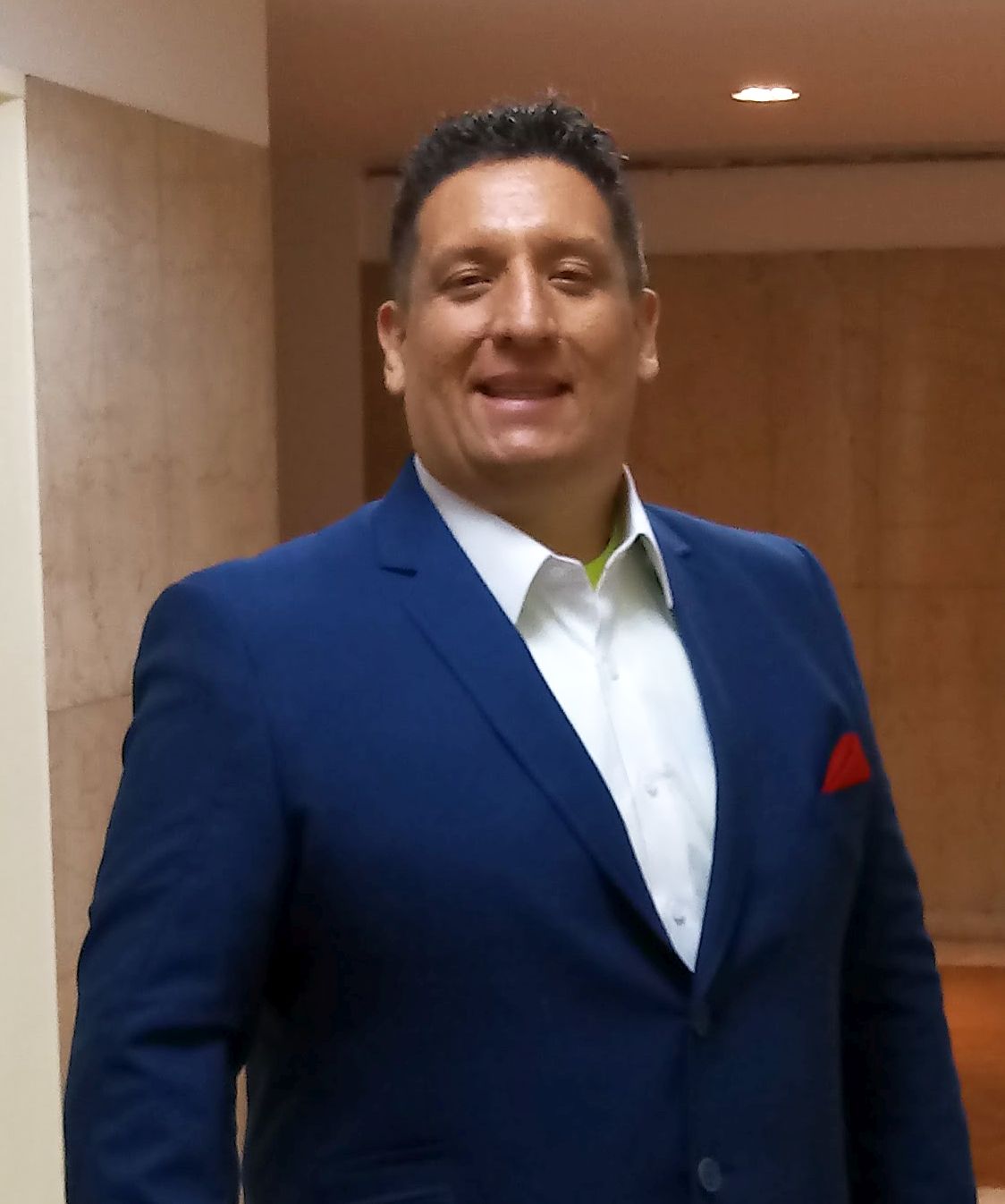 Rubén Pulgarín-Cruz - English and Spanish teacher - Independent consultant
Rubén Pulgarín-Cruz - English and Spanish teacher - Independent consultant
Bio: Ruben Pulgarin is a language educator with experience in intercultural communicative competence. He has successfully designed and implemented numerous international and domestic educational projects centered on intercultural awareness, online exchanges, and computer-assisted language learning.
Passionate about empowering individuals to achieve their language goals and develop essential intercultural skills, Ruben actively engages in different pedagogical activities to foster intercultural sensitivity, language and communication, and the dynamics of online intercultural exchanges.
Ruben has contributed to LatinCALL, SENA, IVE Project, and UFLA, serving as a strategic consultant and providing expertise in intercultural and educational initiatives within the English as a Foreign Language (EFL) context.
Nowadays, he provides English and Spanish intensive synchronous online training to several professionals from different countries, emphasizing the importance of interculturalism and the value of communication skills in different contexts (academic, labor, business, etc).
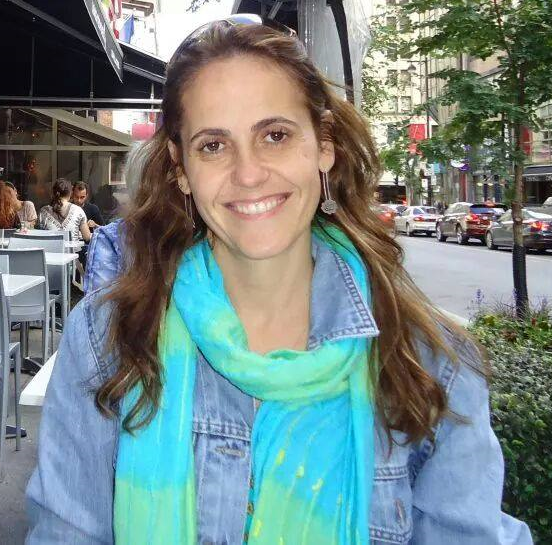 Patricia Vasconcelos Almeida associate professor at Universidade Federal de Lavras (UFLA) - Brazil
Patricia Vasconcelos Almeida associate professor at Universidade Federal de Lavras (UFLA) - Brazil
Bio: Patricia Vasconcelos Almeida has a degree in Languages from the Federal University of Uberlândia and a Master degree in Linguistics from the same institution. PhD in Applied Linguistics from the State University of Campinas, with a period in England at the University of Bath. Post-Doctorate from Federal University of Minas Gerais in Applied Linguistics - Language Studies - line: Language and Technologies. She is currently an English language teacher at the Federal University of Lavras (UFLA) working mainly on the following subjects: teacher training, technology-mediated language teaching and learning and multilearning and CALL, basically following the precepts of Activity Theory. She is the leader of the Digital Technologies and Practices in Language Teaching and Learning research group. She is a member of ALAB and an active member of the International Research Network - Trajectories and Perspectives of Language Teachers in the 21st Century, which involves researchers from many different countries (Germany, France, England, Italy, Portugal, Australia etc.). She is also a member of LatinCALL and ANPOLL. Patricia has contributed to LatinCALL and IVE Project, serving as a researcher experiencing opportunities in intercultural and educational initiatives within the English as a Foreign Language (EFL) context.
 Ester Quiroz-Uribe, Assistant Professor and Head of the English Teaching Program at Universdad de Concepción in Campus Los Ángeles, Chile.
Ester Quiroz-Uribe, Assistant Professor and Head of the English Teaching Program at Universdad de Concepción in Campus Los Ángeles, Chile.
Bio: Professor Ester Quiroz is a passionate teacher from Chile, dedicated to enhancing English language instruction. She graduated as a Teacher of English from the University of Biobío in Chillán, Chile, where her innovative undergraduate thesis, "Technical English Manual for Hotels and Gastronomy," received regional recognition for its outstanding innovation. Pursuing her commitment to education, she completed a Master’s degree in Higher Education with a specialization in University Pedagogy at the Universidad Catolica de la Santísima Concepción. Her thesis, “Integración de los principios del DUA como estrategia didáctica inclusiva para la formación de los estudiantes de educación diferencial, en la Universidad de Concepción, Campus Los Ángeles,” reflects her dedication to inclusive teaching practices.In the early stages of her career, Professor Quiroz taught in vulnerable rural schools throughout Chile, gaining valuable insights into the challenges faced by diverse student populations. Her academic journey took a significant turn when she joined the Universidad de Concepción, Los Ángeles Campus as a university professor. Over the past decade, she has been actively involved in numerous research initiatives and educational projects. Her numerous presentations at various prestigious conferences. In 2024, she presented her work on “The Effects of Telecollaboration on ELLs' Motivation and Intercultural Competence: A Pilot Project” at the 21st World AILA Congress in Kuala Lumpur, Malaysia, following a similar presentation at the WorldCALL Conference in Thailand in 2023. She has also participated in the XXI International Conference on Educational Psychology and the Second International Convention on English Teaching-Learning and Technology in 2023. Her research on Universal Design for Learning (UDL) was featured at the II National Congress on Second Languages and Foreign Languages in 2017, where she addressed challenges in EFL classrooms, and she served on the steering committee for several educational seminars, including the XXI International Conference on Educational Psychology. Additionally, her focus on integrating UDL principles into teaching strategies was highlighted in her presentations at the First Seminar on TEFL Methodology in Chile in 2017 and the 3rd Congress on Educational Innovation (CIED) in 2019. Through her active involvement in these events, Professor Quiroz demonstrates her commitment to advancing educational practices and fostering inclusivity in language education. Notably, she led a virtual telecollaboration project between the University of Concepción and Nazareth University in USA, which resulted in a published book chapter and earned her a Scholar Internship in Rochester, USA. Professor Quiroz is also the treasurer of ALACHI (Chilean Association of Applied Linguistics). Currently, she serves as an Assistant Professor and Head of the English Teaching Program at the University of Concepción in Los Ángeles, where she continues to inspire and educate future generations of English teachers. Additionally, she is the founder and coordinator of the Biobío English Network, which integrates teachers from various municipalities in its Province. With her extensive experience and unwavering dedication to innovative pedagogy, Professor Quiroz remains a vital contributor to the field of higher education in the Biobío region of Chile. Her work is characterized by a commitment to inclusivity and a focus on improving English language instruction for all students.
Keynote 3: Dr. Dara Tafazzoli, PhD. The University of Newcastle, Australia,
 Dr. Tafazzoli is a truly cosmopolitan educator who brings experience from around the world. His recent work in AI is groundbreaking and essential for teachers to understand. This is also a must-see talk for all who aspire to being at the cutting edge of education.
Dr. Tafazzoli is a truly cosmopolitan educator who brings experience from around the world. His recent work in AI is groundbreaking and essential for teachers to understand. This is also a must-see talk for all who aspire to being at the cutting edge of education.
Title: Generative AI in Language Education: University Policies to Classroom Practices
Abstract: The rapid adoption of artificial intelligence (AI) tools, such as ChatGPT, has transformed teaching and learning in higher education institutions (HEIs) worldwide. This shift has sparked both excitement and concern, particularly around academic integrity, assessment methods, and the evolving student-teacher dynamic. In response, many universities, especially in Australia, have scrambled to introduce AI-related policies. However, these policies vary widely in detail and appropriateness, often developed without sufficient deliberation. In the first part of the speech, the current AI Landscape in language education, I will begin by exploring the current state of AI adoption in higher education, with a particular focus on how AI tools like ChatGPT are being integrated into language education. Then, in the second part, analyzing Australian university AI policies, I will present findings from my research on AI policies currently implemented in Australian universities. Then, in the third part, risks and challenges of AI integration, I will address the key risks, particularly in the context of language education. To mitigate the risks AI tools pose, in the fourth part, strategies for safe and effective AI use in language education, I will introduce a set of practical strategies that educators can adopt. The aim here is to show how AI can be used as a positive force in language education without undermining core educational values. In the final section, implications for future policy and global perspectives, I will propose recommendations for policy improvements that ensure AI tools are integrated in a way that enhances learning while safeguarding academic integrity.
Bio: Dara Tafazoli holds a Ph.D. in Languages and Cultures from the University of Córdoba, Spain. He is a Research Officer on the Virtual Reality (VR) School Study and Higher Education Research Academy (HERA) at the University of Newcastle, Australia. His primary research interests are in CALL teacher education and professional development, applications of emergent technologies like XR and AI in language education, and cultural studies related to language education.
Keynote 4: Dr. Allen Quesada, Ph.D. MSc, M.A. University of Costa Rica
 Title: AI-Powered Adaptive Language Testing: A New Approach to Personalized Learning Assessments
Title: AI-Powered Adaptive Language Testing: A New Approach to Personalized Learning Assessments
Abstract: In this presentation, I will dive into how artificial intelligence is reshaping language testing, with a focus on adaptive and automatic assessments. AI-powered tools go beyond traditional exams by creating personalized testing experiences and offering real-time feedback that empowers learners to improve their English skills more effectively. By harnessing the capabilities of AI, assessments can dynamically adjust to each learner’s proficiency level, ensuring not only more accurate evaluations but also turning the testing process into an active learning experience. This innovative approach transforms assessments from a simple measurement tool into an interactive, learner-centered resource that enhances both teaching outcomes and student engagement in the English language teaching field.
BIO:
Dr. Allen Quesada Pacheco is a researcher and tenured professor at the School of Modern Languages, University of Costa Rica (UCR). He currently serves as the Chair of the School of Modern Languages and previously held the position of Dean of the Faculty of Letters. Dr. Quesada earned his Ph.D. in Curriculum and Instruction, and an M.Sc. in Educational Technology from the University of Kansas (KU). As a Fulbright scholar, he also completed an M.A. in TESOL at New York University (NYU) and holds a B.A. in Teaching English from the UCR.
In recognition of his significant contributions to the field of education and innovation, Dr. Quesada was honored in 2022 with the Institutional Commemorative Medal of UCR's 75th Anniversary, under the category "Education: Innovation in the Mission of Training New Professionals."
Dr. Quesada brings extensive teaching experience across various EFL programs at the University of Costa Rica. His research focuses on technology-enhanced EFL learning, bilingualism, telecollaboration, and digital language testing.
For over 25 years, Dr. Quesada has been at the forefront of developing CALL (Computer-Assisted Language Learning) materials, notably as the creator of the web-based programs CyberlabKIDS and CyberlabTEENS (http://cyberlab.ucr.ac.cr), Phonics for the Ministry of Education (MEP) (http://cyberlab.ucr.ac.cr/phonics), and Netgrammar (https://cyberlab.ucr.ac.cr/netgrammar).
Featured Speakers
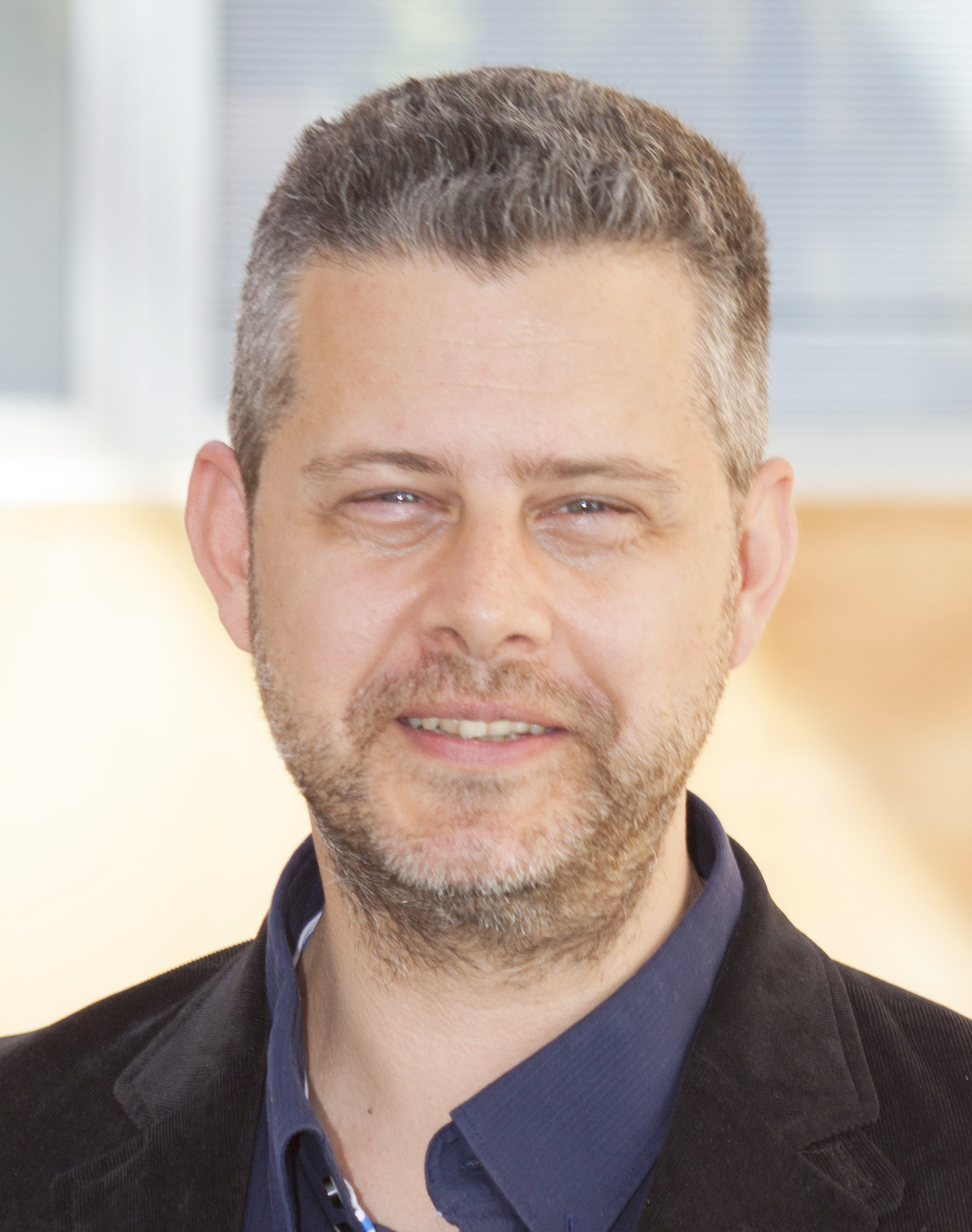 Featured speaker 1: Bert Decoutere, Bert De Coutere is the IP & Innovation Lead and Design Faculty at the Center for Creative Leadership (CCL)
Featured speaker 1: Bert Decoutere, Bert De Coutere is the IP & Innovation Lead and Design Faculty at the Center for Creative Leadership (CCL)
Title: Exploring Critical Questions at the Intersection of AI and Learning in Higher Education
Abstract: As Artificial Intelligence (AI) reaches the 'peak of inflated expectations' on the Gartner Hype Cycle for Higher Education, educators are engaging with it through a mix of enthusiasm and skepticism. In this session, we will explore some of the pressing questions surrounding AI’s role in higher education. Through concrete examples, we will examine the following critical issues:
- Should institutions prioritize efforts to prevent cheating through AI tools like ChatGPT or focus on leveraging these technologies for academic development??
- How viable are the promises of AI tutors and teaching assistants?
- What are the immediate and practical applications of AI in higher education today, and where do they fall short?
- Can AI realistically replace or augment language teachers?
- What ethical and legal considerations should educators be mindful of when integrating AI into language learning programs?
This session aims to provide an informed discussion on the evolving relationship between AI and higher education, helping educators navigate both the opportunities and challenges AI presents.
Bio: Bert De Coutere is the IP & Innovation Lead and Design Faculty at the Center for Creative Leadership (CCL). With over 20 years of experience in corporate learning and leadership development, Bert specializes in technology-enhanced learning and innovation. Bert is the author of Homo Competens and a frequent speaker at international conferences, and a council member of Online Educa Berlin. He holds degrees in Information Management and an Executive MBA.
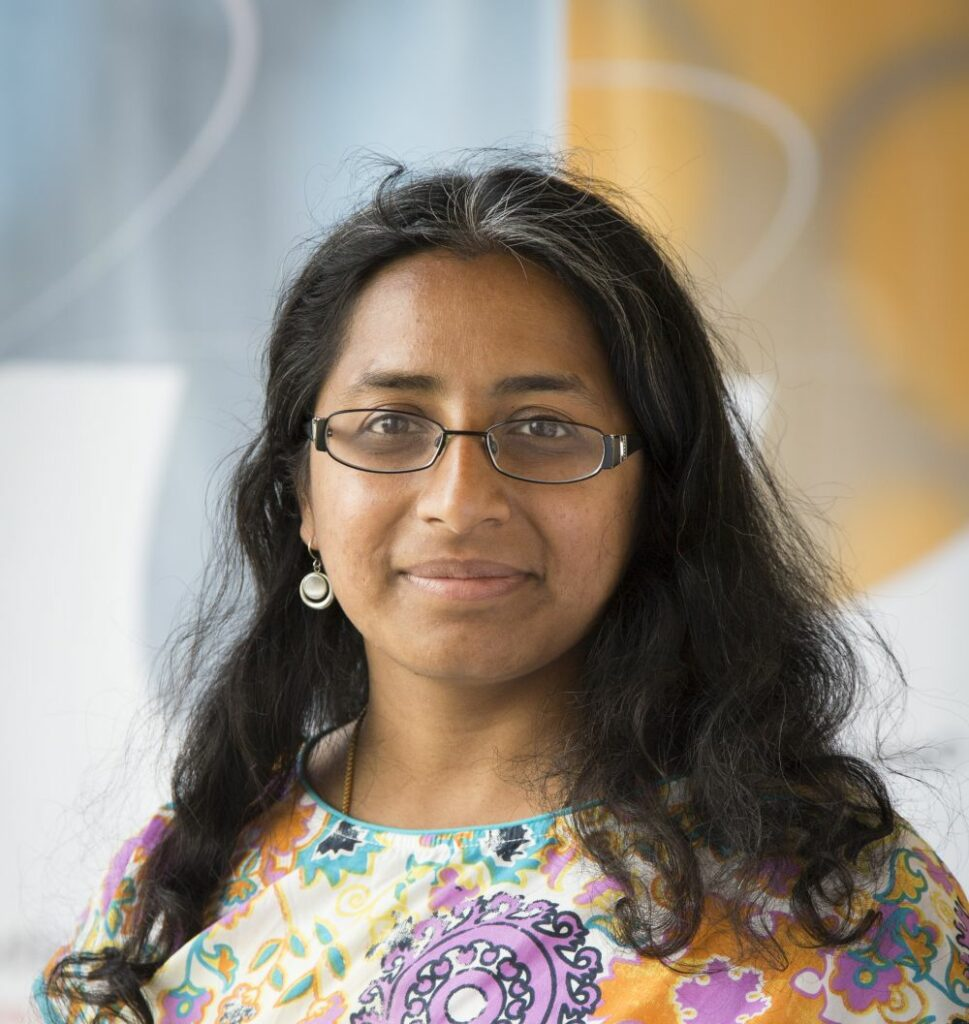 Featured speaker 2: Kamakshi Rajagopal: Independent Consultant
Featured speaker 2: Kamakshi Rajagopal: Independent Consultant
Title: The Complexity of Learning: Renewed Focus on Continuous Professional Development of Teachers and Educators
Abstract: The goalposts for teachers and educators seem to have changed: in the current world, they are expected to be aware of the latest technologies and pedagogical innovations and integrate these appropriately in their teaching. These expectations are so great, that they increasingly touch upon the very essence of teaching, namely time to build a relationship with their students – resulting in multiple, non-desirable situations. In this presentation, I would like to reflect on teacher continuous professional development through three observations on our current educational landscape. The first observation concerns the multiple pedagogical innovations, often driven by technology, and the changes these have enabled. The second looks at the global crisis in education, accelerated by the pandemic, and the resulting issues of teacher shortage across the globe, including and the importance of lifelong learning and development. The third observation looks at the gap that exists between educational research and educational practice. The impact of these circumstances on educators are dire, pressing and manifold: (i) there is an increased emphasis on learning design, with grand expectations of every educator and teacher; (ii) everyone in the field is increasingly overwhelmed by waves of change, running behind the advancements of technology; (iii) the value of education itself is being increasingly questioned. These circumstances have also sparked debate on the nature of education, and what our goals for our future generations is: do we educate to support our young people to become functional part in society, or do we support them to grow as a person? This reaches to the very heart of the role of education in our societies.
Where do we find solutions for these complex challenges? In my presentation, I will propose some areas of action – starting from teacher continuous professional development - that may lead us towards a changed future. Bringing together innovations in educational research methodology and a community-perspective on teacher education, my presentation brings to the fore a vision on sustainable, relevant and fit-for-purpose teacher continuous professional development.
Bio
Dr. Kamakshi Rajagopal is an interdisciplinary researcher and freelance consultant in educational design and technology, with extensive experience in networked learning and social learning formats, supported by innovative technologies. She holds a Masters degree in Linguistics (2003) and Artificial Intelligence (2004) from KU Leuven (BE). She completed her doctoral research at the Open Universiteit (NL) in 2013, investigating personal learning networks and their value for continuous professional development. Her current research is on the complexity of learning environments and more specifically on how teachers and learners can be supported to work effectively in this complexity. Dr. Rajagopal has developed multiple (nationally-funded and European) collaborative research projects in primary, secondary and higher education with partners from the academia, public sector, industry and civil society. Some examples of her projects include the role of teacher networks in educational innovation, thesis circles in higher education, multimodal measurement in collaborative hybrid learning spaces, and mainstreaming Virtual Mobility at higher educational institutions. Since 2023, she has been working in Learning and Development in IT & business consultancy.
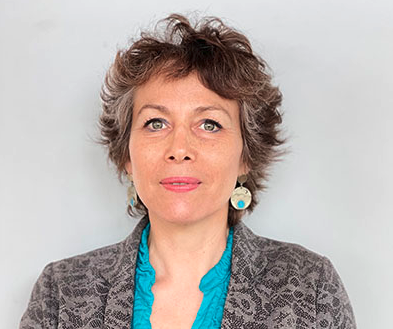 Featured speaker 3: Roxana Rebolledo Font de la Vall
Featured speaker 3: Roxana Rebolledo Font de la Vall
Title: Multimodal AI tools for developing language skills
Abstract: This presentation explores the potential of multimodal Artificial Intelligence (AI) tools in transforming English as a Foreign Language (EFL) instruction. Moving beyond text-based AI, she will focus on tools integrating various modalities, such as voice, image, and video, to create more engaging and immersive learning experiences. Participants will examine how these cutting-edge technologies can enhance all four language skills - reading, writing, listening, and speaking.
Her talk will address the opportunities and challenges of incorporating AI into EFL pedagogy. It will provide practical demonstrations of various multimodal AI tools and offer guidance on effectively integrating them into different teaching contexts. By attending this talk, participants will:
1. Gain a comprehensive understanding of multimodal AI and its applications in EFL.
2. Explore a range of innovative AI tools and resources suitable for different learning levels and language skills.
3. Develop strategies for effectively integrating multimodal AI into their teaching practice.
Bio:
Roxana Rebolledo Font de la Vall is an English teacher with a Master's in Educational Communication, specialising in Information and Communication Technologies (ICT). She is pursuing a Doctorate in Educational Technology at the Universitat Rovira i Virgili in Tarragona, Spain. She is a member of the Applied Research Group in Education and Technology (ARGET). She is an Associate Professor at the University of Playa Ancha-Chile, affiliated with the Department of Mathematics, Physics, and Computing. She is also a coordinator and instructor for the ICT courses.
With 18 years of professional experience, she has developed and implemented digital projects, primarily in the educational and corporate sectors. Her expertise lies in training teachers and future educators in the effective use of technology for teaching and learning. She is also a virtual tutor, instructional designer, and content developer for virtual learning platforms (LMS). She holds a Moodle certification (MEC) and is proficient in various digital tools for education based on artificial intelligence.
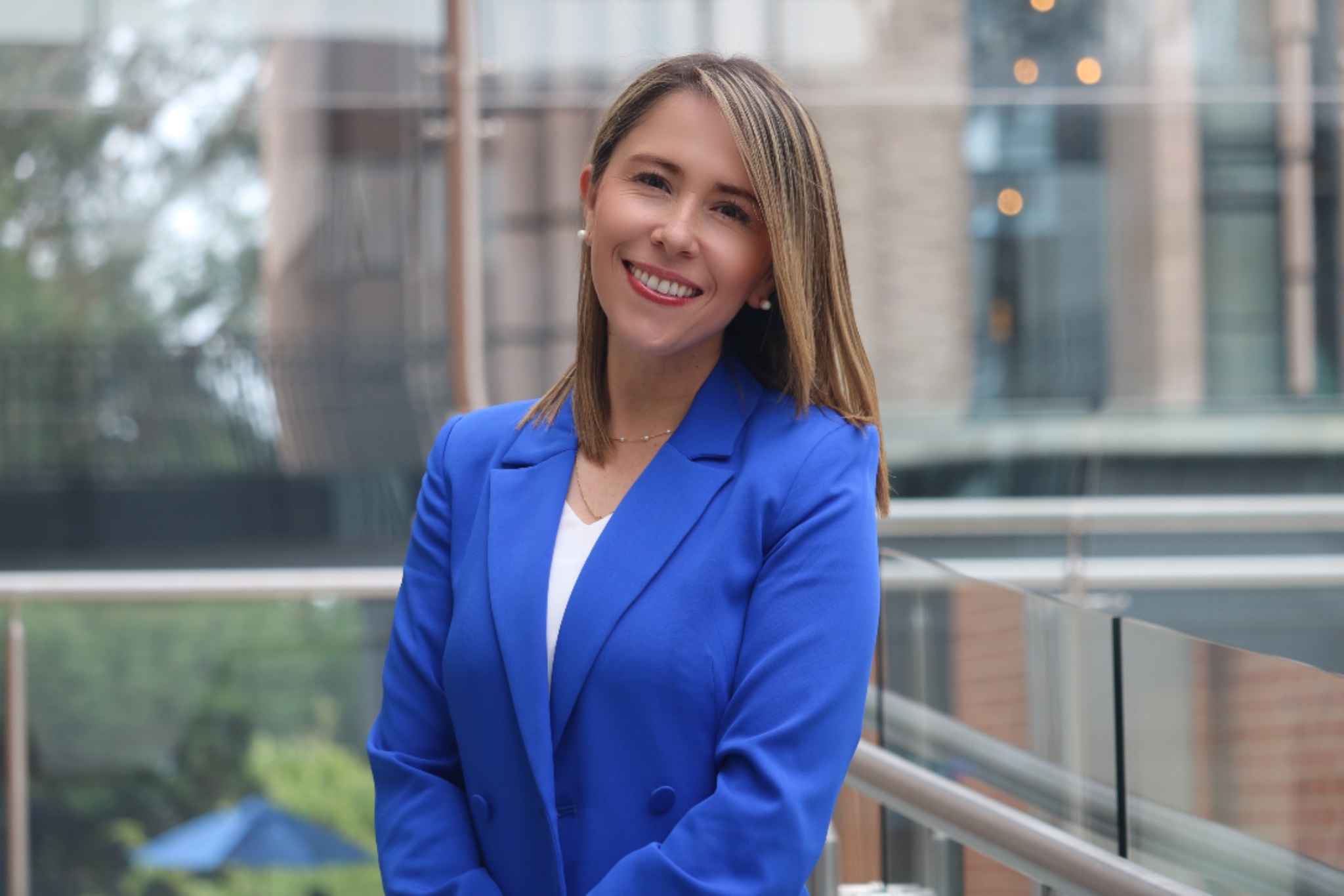 Featured Speaker 4: Dr. Liliana Cuesta Medina, Associate Professor at Universidad de La Sabana (Chía, Colombia).
Featured Speaker 4: Dr. Liliana Cuesta Medina, Associate Professor at Universidad de La Sabana (Chía, Colombia).
Title: Breaking paradigms - An integrative vision of AI in research and teaching
Abstract: With the fast advent and strong release of AI tools, educators are called to explore and integrate them into their academic life, while they also level up their digital literacy skills. However, to catch up with these defies at once might be overwhelming, given the fact that educational institutions are yet learning to embrace both the immersion and normalization of AI in their strategic plans, and teachers might either lack time, knowledge or motivation to fully endorse AI in their daily life. Such integration also suggests the recognition of possibilities in which AI offers new scenarios to adaptivity and personalization of learning as well as to the optimization of research and teaching. It is also an open door to learning new ways to reduce risks and biases on content generation and text production supported by automations, keeping in mind efficient data privacy and security management procedures.
Not only, should educators and researchers be equipped to design routes that facilitate a gradual and effective integration of AI technologies to enrich their practice, but also, they should be empowered and supported by their institutions to enact change, focusing on global and local standards that promote a safe policy use of AI in the classroom, facilitate an equitable access to knowledge, and foster knowledge generation and dissemination across cultures. This presentation will address how the former breaches can be reduced, illustrating real-case practices of Latin American higher institutions, and drawing essential considerations for effective AI research and teaching.
Bio:
Dr. Liliana Cuesta Medina is an Associate Professor at Universidad de La Sabana (Chía, Colombia). She is the Director of Outreach and Engagement of the School of Communication at the same university. She holds a PhD in English Philology from the Universidad Nacional de Educación a Distancia (UNED-Madrid, Spain). Her research areas include (but do not restrict to) computer-assisted language learning (CALL), teacher education, online education, content and language integrated learning (CLIL) and intercultural and international education. She has extensively published and participated in conferences across the globe, as well as led national and international projects on these areas. Dr. Cuesta is also an active member of worldwide associations in the area of CALL, ELT, and blended learning. She serves as an evaluator for the National Council of Accreditation and various assessment boards of ELT and education programs in Colombia.
